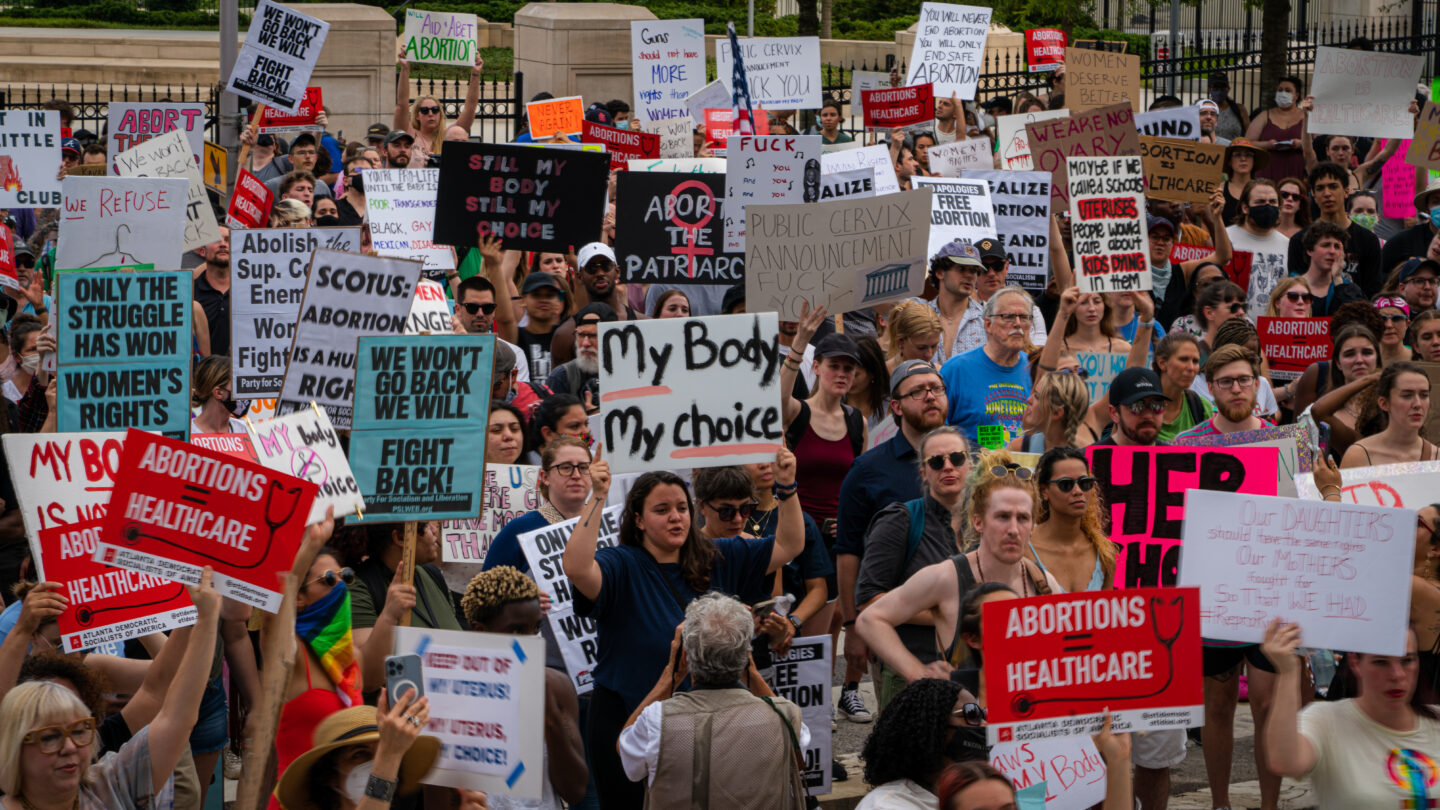Georgia’s Supreme Court is set to hear oral arguments Tuesday in a lawsuit over the state’s abortion restrictions that ban the procedure once fetal cardiac activity is detected in the womb, at roughly six weeks of pregnancy.
This latest hearing in the case, State of Georgia v. Sistersong Women of Color Reproductive Justice Collective, et al., at the state’s highest court follows months of lower court battles over the abortion law last year.
The six-week ban means most abortions are illegal in Georgia at a point before many people know they’re pregnant. H.B. 481 took effect in 2022, not long after the United States Supreme Court overturned Roe v. Wade abortion protections.
Attorneys representing abortion rights groups and physicians are arguing the law is unconstitutional under the Georgia state constitution because it was created and passed in 2019, when Roe was still in effect.
“There is no question that in 2019 Roe v. Wade was the law of the land. And there’s no question that federal courts all over the country were enjoining abortion bans pre-viability because the Supreme Court law was very clear that there could not be abortion restrictions pre-viability. And so there just simply is no question that Roe was applicable law in 2019 when the Georgia ban was passed,” said Cory Isaacson, legal director of the ACLU of Georgia.
The ACLU, the Center for Reproductive Rights, Planned Parenthood and other groups filed the lawsuit last July after a federal appeals court allowed H.B. 481 to take effect. It was previously blocked on constitutional grounds.
After a trial in Atlanta, a Fulton County Superior Court judge granted an injunction against the abortion law. The state then appealed the ruling.
The Georgia Attorney General’s office is arguing the state’s abortion restrictions remain valid and should continue to be upheld. In a brief filed ahead of oral arguments, attorneys for the state wrote that Roe v. Wade previously bound courts, but now that it has been overruled, “it has no force whatsoever.”
“No court has ever held that an overruled judicial opinion can, like a zombie rising from the grave, invalidate otherwise perfectly valid laws,” the brief read. When the U.S. Supreme Court overruled Roe, “the effect [was] not that the former decision was bad law, but that it was never the law,” the brief continued.
Solicitor General Stephen Petrany will argue the case on behalf of the state attorney general’s office. Ross Bergethon, deputy solicitor general, is also expected to be in the courtroom.
Attorney Julia Stone, a partner at the firm Caplan Cobb, will argue for the plaintiffs.
The Georgia Supreme Court is expected to issue a ruling in the case by or before July.










